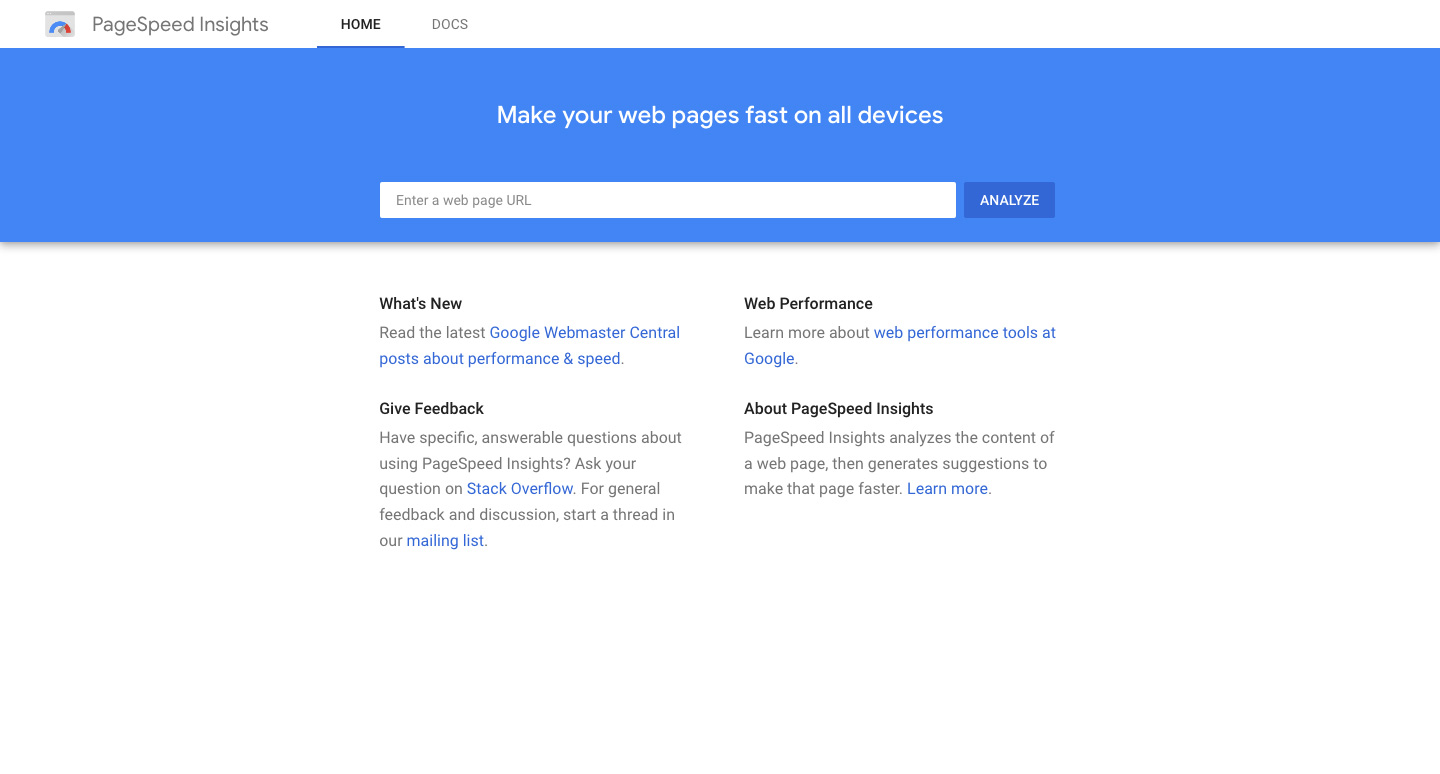So when you make your website live, that’s all that there is to it. Everyone is going to just flock to your website, right? You don’t need to worry about some web marketing, correct?
No. Not at all.
Websites do not just go viral overnight. Just because your website is live doesn’t mean people and, more importantly, potential customers are going to stroll across your website by the thousands. It’s a website misconception that can cause you a lot of disappointment if you thought otherwise.
Instead, it takes a lot of effort to effectively market your website. There is search optimization to do, content marketing to create, social media marketing to do and a lot more. You have to find a way to compete with everyone else vying for the attention of your target audience.
Hoping people just happen to come across your website is not an effective marketing strategy.
Where this misconception comes from
Like every other misconception when it comes to websites, this one comes from simple lack of understanding about how websites and the internet work.
People who start with websites probably have this preconceived notion that once their website is online, Google will find it and simply show it in search results and people will just click on those results. And that just isn’t true. Maybe back in the day it once was, but not anymore.
Today’s internet is as crowded as it has ever been. There are thousands, if not hundreds of thousands, of websites competing for the same eyeballs you are. Getting onto the first page of Google results is a filled with stacked competition, and it really takes work in order to achieve that goal.
And I will admit that back in the day, I thought the same way. I thought just publishing the site was good enough. But as I’ve learned more about websites, I’ve realized that’s just not the case. There are so many other things that need to be done.
So if you are one of those people who thought you could just create your website and be done with it, you’re kind of in for a shock and a lot of learning (but it is possible to learn how to properly market your website).
Why it is wrong
It’s pretty simple; just because you publish your website online does not mean you’re going to start getting tons of traffic to your website overnight. That’s not how the internet works these days.
Yes, there are websites that can go viral overnight, but there is a lot of work that goes on behind the scenes to even make that a remote possibility. You have to make sure that the HTML structure of your website is just right for search engines. Then you have to make sure you have great content that people are going to want to consume. Plus, there’s the advertising and social media marketing that goes into all of it.
And even then going viral is still a matter of luck. It’s definitely not something that you can count on. Viral marketing is not a sound digital marketing strategy.
So you have to work to promote your website. That means working on your search engine optimization, coming up with strategies for content and social media marketing and finding other ways to promote your website and your business. And none of this will be instantaneous.
Get Web Hosting and Marketing Help All in One!
If you run a WordPress website, there might not be a better plan. Sign up for one of the WordPress Website Care plans and receive top-of-the-line web hosting, security managed updates AND help with your digital marketing. Whether it’s just getting analytics set up, analyzing your SEO efforts or even planning out your content for the next month, you can get all of the help you and your website need.
Let’s Give Your Website the Care it DeservesAn introduction to web marketing
This leads me into a basic introduction to digital and web marketing. Getting traffic to your website is one part of digital marketing. Another part is creating a website that directs users to purchase a product or service from you (but hopefully you’ve already completed that step).
Digital marketing is a massive, massive topic with a lot of different facets to it, but consider this an invitation to learn more about it and how you can use it to boost traffic and conversions for your website.
And things like social media marketing and search engine optimization are big parts of that, and they all take a lot of effort to do correctly. So you need to know that this isn’t going to be super easy and that there’s a lot that you’ll need to do in order to get people to your website and becoming customers.
Working on your SEO
One of the most intensive parts of driving people to your website is search engine optimization, or SEO.
Search engine optimization is the process of working on your website to optimize it to appear higher is search results and get clicks from those searches. As Nigel Stevens, CEO and founder of Growth Lead, said, SEO is trying to “figure out what people are doing, create authority on it, create content that satisfies user intent and try not to suck. That’s, like, SEO in a nutshell.”
There are many facets to SEO, and far too many of them to go over in this post, but I will briefly mention some of them. First, you’ll need to make sure that the code of your website is written in a way to help Google understand what your pages are about and keeps them running quickly.
Next, you’ll need to do keyword research so that you can figure out what your target audience is searching for and how you can reach those searches. Plus, you’ll need to work on your internal linking structure and getting coveted backlinks. And finally, you’ll need to make sure that Google has a sitemap of your website (more on that here in a second).
It’s an ongoing process no matter how good you get at it. You’ll need to check in on how your SEO is going at least once a week in order to make sure you’re doing the best you can.
Submit your site map
In order for Google to even have the ability to display your web pages in its results, it first needs to be able to find it and index it. Now, eventually it might find your site if it gets linked to from somewhere else, but who knows how long that could take.
Instead, we have a better option: Google Search Console. Here, among the many other things you can do in Search Console, you can upload your website’s XML sitemap to Google so that it can index it.
According to Google, “a sitemap is a file where you provide information about the pages, videos, and other files on your site, and the relationships between them.” Essentially it is a file that has links to the pages on your website for Google’s crawlers to go through and index them.
Once Google’s crawlers are able to go through your pages, your website will be able to appear in Google search results. Of course, there’s a lot more that has to go into them appearing in the first couple of pages so that people will click on it, but at least can be found from Google.
Get Insights on How to do a Small Business Website Right!
Are you looking to get some help with your small business’ website, but aren’t quite in a spot to take that next step? No worries! I’ve got you covered with a small business newsletter. This weekly newsletter will talk about a different subject related to websites and small businesses each week, as well as highlight blog posts that can help you out. This will help you optimize your business’ site as much as you can while you get yourself into a position to take the next step for your website.
"*" indicates required fields
Social media marketing
Also, this is a great thing to put out on your social media platforms. Or it’s an even better time to create social media for your business if you don’t already have them.
You can post the link to the bio of your profiles for people to click on, plus you can promote different bits of content that you might have on your website plus landing pages for products and services. And that’s in addition to being able to ask questions to your target audience and post helpful information from other websites.
Like SEO, there’s a lot more here for you to dive into than just this post. And you will really have to learn social media marketing in order for it to be effective for your marketing efforts. But making sure that you’re promoting your website on social media is a great way to get more traffic to your website.
Include it in your signage
Finally, make sure to include your website in all of your signage and other marketing materials, including email signatures.
This seems like it would be a really simple thing to do, but like a lot of things it can slip through the cracks. You think you’ve already done it (because it seems so simple) but in reality you just forgot about it.
So make sure to place it on all of your stationary, if you use any. Place it in the signature of all of your emails. If you have a physical location, make sure the URL is on your storefront for all to see.
This helps prod people to go look at your website and check it out. And sure, this probably isn’t going to target new potential customers since people have to already know who you are.
But hopefully they will go and spend a good amount of time on your website. And if you have Google Analytics up and running, Google will recognize your higher average time on page and will start to give your pages a boost. And that in turn will hopefully lead to new eyes on your site and more customers.
But just know this: just because you’ve launched your new website doesn’t mean people are going to flock to it. Digital and web marketing is a marathon and not a sprint. You continually have to work to get people to your website. But the payoff will be worth it.






